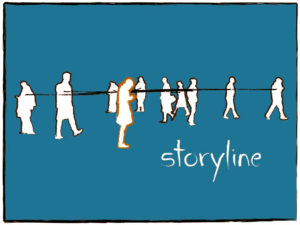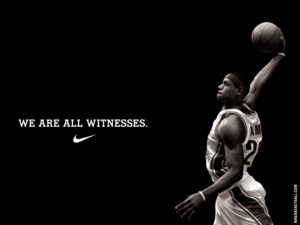Not Yet
 Every time I read the first half of the book of Acts, I am amazed by the transformation of the apostle Peter. The apostle who denied Jesus after his arrest becomes one of the boldest witnesses for Christ. He is not intimidated by threats, beatings or imprisonment. He just keeps telling the story of Jesus.
Every time I read the first half of the book of Acts, I am amazed by the transformation of the apostle Peter. The apostle who denied Jesus after his arrest becomes one of the boldest witnesses for Christ. He is not intimidated by threats, beatings or imprisonment. He just keeps telling the story of Jesus.According to historical tradition, Peter was killed around 68 A.D. Although he was to be crucified, he did not consider himself worthy to be killed in the same way his savior had been. He asked instead to be crucified upside-down. Peter seems so far removed from that moment when the rooster crowed.
Following the execution of James at the beginning of Acts 12, Peter might have thought his time was about to be up. Each time he was taken into custody, he had to know that authorities were growing more tired of him and his influence for Christ. This time it was Herod who seemed ready to conduct a show trial that would lead to his death. Herod thought that Peter’s execution would gain favor with the people. But that wasn’t God’s plan. He was not finished with Peter yet. God still had work for him to do.
While he was well guarded in prison awaiting his trial, an angel appeared to free him. Herod planned to be rid of him the next day, but God had something else in mind. It’s often during those times that we think we have control, or we are sure how things are going to turn out that God moves and reminds everyone who is really in control. Whether we are struggling with what seems to be an impossible situation or timing that we just cannot explain, sometimes God is waiting to reveal himself. Peter was learning something that Paul would write about later in Philippians 1:21, “For to me, to live is Christ and to die is gain.” Whatever was going to happen in that jail cell, Peter was ready for the next step. This time, that step was to freedom and many more years to live for Christ.
Brian
Hang On
 Each week our announcements and prayer list are filled with people who are facing difficulties in life. We are surrounded by loss, illness and other challenges. I hope you will be encouraged by this article from Scott Franks, Preaching Minister at the Burnt Hickory Church of Christ. It is a great reminder to trust in God and His love for us. – Brian
Each week our announcements and prayer list are filled with people who are facing difficulties in life. We are surrounded by loss, illness and other challenges. I hope you will be encouraged by this article from Scott Franks, Preaching Minister at the Burnt Hickory Church of Christ. It is a great reminder to trust in God and His love for us. – BrianHas God asked something of you that seems unfair? Overwhelming? Impossible? You’re not the first to think so. I imagine Noah felt the same. Imagine processing this message from God: • I’m going to wipe all life off the face of the earth. • You are a farmer, but spend the next hundred years building a massive ship while enduring the questions and ridicule of your neighbors. • Two of every kind of bird and livestock and wild animal will miraculously show up here and you will have to keep them alive. • Everything will start over with you.
Fast-Food Christianity
 As we have been looking at the book of Acts on Sunday mornings, we have seen a transformation happening in the lives of the followers of Jesus. The measure of the Spirit given to the twelve apostles can easily explain how different they are from the apostles we learned about in the gospels. For the newly converted Christians, the transformation seems to be directly related to what they spend their time doing. At the end of chapters 2 and 4, they are unified in worship and sharing life together. Their walk with God extends far beyond the first day of the week. Unfortunately this kind of daily practice of Christianity does not take root in many churchgoers in our world today.
As we have been looking at the book of Acts on Sunday mornings, we have seen a transformation happening in the lives of the followers of Jesus. The measure of the Spirit given to the twelve apostles can easily explain how different they are from the apostles we learned about in the gospels. For the newly converted Christians, the transformation seems to be directly related to what they spend their time doing. At the end of chapters 2 and 4, they are unified in worship and sharing life together. Their walk with God extends far beyond the first day of the week. Unfortunately this kind of daily practice of Christianity does not take root in many churchgoers in our world today.In his book, D2: Becoming a Devoted Follower of Christ, Phil McKinney believes this is a product of our consumer culture. He describes it as “Fast-Food Christianity.” It resembles the fast-food experience in a number of ways.
- Replacement of responsibility: Someone else can do the work while the fast-food Christian enjoys the benefits.
- Choices: The fast-food Christian can choose the church and the level of involvement.
- Cheap: It will only cost what the fast-food Christian is willing to pay.
- Service with no strings attached: The fast-food Christian doesn’t have to make long-term relationships and can frequently make complaints without helping with solutions.
- Quick: The fast-food Christian wants everything done quickly. Sermons need to be short. There shouldn’t be too many songs. If there’s a problem, it needs to be corrected quickly.
- Drive-through service: At its core, the fast-food experience is a transaction. Fast-food Christianity can be the same. Get in and out of the building as quickly as possible on a Sunday morning, and repeat the next week.
Just the brief contact with the word of God and good people would probably make the fast-food Christian’s life better than it would be otherwise, but that person is missing out on so much of what God has in mind for us. And believe it or not, the church is missing out on the transformed version of that same person. McKinney says that God’s call to discipleship is the opposite of Fast-Food Christianity.
- Responsibility – Galatians 2:20
- Costly – Luke 14:25-33
- Only one choice – John 14:6
- Service with strings attached – 1 John 3:16-19
- Slow and sometimes painful – Hebrews 11:32-40
- Commitment – Luke 9:23-26
Here at Southwest there are many opportunities to serve and get more involved as we grow as His disciples. Even beyond the ministries here, let’s never be content with less than the work God made us to do. We are His disciples all day, every day.
Brian
For we are his workmanship, created in Christ Jesus for good works, which God prepared beforehand, that we should walk in them. – Ephesians 2:9
Storyline
 In the end of Acts 6 and all of Acts 7, we find the account of Stephen. He is first introduced as one of the seven who serve the needs of the church, but it is very clear that he took the command to be a witness to heart. When he is questioned by the high priest about the charge of blasphemy against him, Stephen answers by telling the gospel. He does not begin with the manger in Bethlehem. He does not start by telling them about how the Spirit descended like a dove at the baptism of Jesus. He does not introduce his story with the first miracle, the last supper, the crucifixion or the resurrection. Stephen begins by talking about Abraham. Why Abraham?
In the end of Acts 6 and all of Acts 7, we find the account of Stephen. He is first introduced as one of the seven who serve the needs of the church, but it is very clear that he took the command to be a witness to heart. When he is questioned by the high priest about the charge of blasphemy against him, Stephen answers by telling the gospel. He does not begin with the manger in Bethlehem. He does not start by telling them about how the Spirit descended like a dove at the baptism of Jesus. He does not introduce his story with the first miracle, the last supper, the crucifixion or the resurrection. Stephen begins by talking about Abraham. Why Abraham?There is the initial answer that since he is defending himself before a Jewish high priest, Abraham would be an obvious, familiar point of connection. I believe there is more to it than that. As we read stories in the Old Testament that remind us of our childhood Bible classes or Vacation Bible School, we sometimes lose sight of the connectedness of each person in scripture. They all play a part in the story that God had in mind before time began. The first chapter of Matthew serves in part to bridge those Old Testament stories and the arrival of Jesus. Stephen reminds his accusers (and us) of that storyline in Acts 7. Abraham, Isaac, Jacob, Joseph, Moses, and David were all part of the story that would lead to the Messiah. Stephen’s accusers had missed the climax of the story because they were too caught up in the history that led to it. Stephen understood that it all fit together.
The true beauty of God’s story is that it is ongoing. Because of His great love, He invites us to be part of that story. The church today continues to give the same witness that Stephen did in Acts 7. We know the good news that not only did Jesus come to earth in the beginning of the gospels. It was the Father’s plan all along that He would come so that we could be with Him. Each of the people Stephen mentions are part of that plan. Although the Bible is a collection of many stories, the amazing story of God and His love for His people is woven through all of those individual stories.
Let’s not forget as we look at those old, familiar stories that they were all part of God’s great plan to draw His people back to Him. It is a desire important enough for Him to send His son for us.
Brian
For while we were still weak, at the right time Christ died for the ungodly. – Romans 5:6
Facing Your Lions
 As we celebrate Father’s Day, I want to share a letter with you that was written by Wes McAdams, Preaching Minister for the church of Christ on McDermott Road in Plano, Texas, to his sons when they were younger. These Biblical truths are timeless lessons for Christian men. – Brian
As we celebrate Father’s Day, I want to share a letter with you that was written by Wes McAdams, Preaching Minister for the church of Christ on McDermott Road in Plano, Texas, to his sons when they were younger. These Biblical truths are timeless lessons for Christian men. – BrianDear Boys,
I would like to tell you a story about a young shepherd named David. One day David was out quietly watching over his father’s sheep. Suddenly he heard a rustling in the grass—a ferocious lion appeared. With lightening fast speed, the lion snatched up a lamb and held him firmly in his jaws of death. The lion, with the struggling lamb in his mouth, retreated from the pasture to enjoy his prey. David wasted no time; in a moment he caught up to the lion. Without hesitation he attacked the hungry cat, caught him by his beard, and killed him (1 Samuel 18:34-36).
I think it is important that you know this story for several reasons… (Click here to continue reading at RadicallyChristian.com)
Summertime
 Summertime has a different rhythm than the rest of the year. It is a welcome change for many, but it is still a bit of an adjustment. Summertime in church life is different as well. We have occasional Sundays where the crowd might be sparse, because many went on vacation at the same time. Some of our regular church calendar is a little less full as well. We get to enjoy lessons from some different faces on Wednesday evenings, and ministers all over this part of the country have the opportunity to speak to different groups. For these and many other reasons, I enjoy the summer.
Summertime has a different rhythm than the rest of the year. It is a welcome change for many, but it is still a bit of an adjustment. Summertime in church life is different as well. We have occasional Sundays where the crowd might be sparse, because many went on vacation at the same time. Some of our regular church calendar is a little less full as well. We get to enjoy lessons from some different faces on Wednesday evenings, and ministers all over this part of the country have the opportunity to speak to different groups. For these and many other reasons, I enjoy the summer.As I write this article, I am in Searcy, Arkansas, where I spoke this week to the congregation I worked with for almost 14 years. It is always good to reconnect with friends and to share something from God’s word. During this trip, I was flooded with memories of youth ministry. Although the rhythm of summer takes on a slower pace with a sparse calendar in other areas, that is not the case in youth ministry. The youth ministry summer calendar is full of camps, trips, devotionals, service projects and much more. I was asked this week if I ever miss it. There are parts of it that I really do miss, but even thinking about the pace of summer makes me a little exhausted.
I hope you realize how blessed we are at Southwest to have John and Jessica doing all the things they do, and I hope you will do whatever you can to help them as they bless our teens. Whether you are young or old, there are things you can do to make this summer a good one for our youth ministry at Southwest.
- Pray for John and Jessica. You might even let them know that you are praying and ask them if there are specific things you can pray about.
- Pray for our teens. Summer can be a great time of growth. Pray for those opportunities. Pray for their safety during increased travels. Go to God on their behalf.
- Volunteer. There is always a need for chaperones, drivers, teachers, people to host or cook for events and various other things. Ask John how you could be of service.
- Encourage. Encourage. Encourage. We can’t do this enough everywhere in life. This is no different. Our teens, parents and leaders can all use positive words.
As busy as those summers were, I can think of time after time where God made an impact on people during those times. It was in the midst of plans that went off without a hitch and times where thing were changing so quickly it was hard to keep up. God was working through it all. I can’t wait to see what He does this summer.
Brian
Let no one despise you for your youth, but set the believers an example in speech, in conduct, in love, in faith, in purity. 1 Timothy 4:12
In That I Rejoice
 “I want you to know, brothers, that what has happened to me has really served to advance the gospel, so that it has become known throughout the whole imperial guard and to all the rest that my imprisonment is for Christ. And most of the brothers, having become confident in the Lord by my imprisonment, are much more bold to speak the word without fear. Some indeed preach Christ from envy and rivalry, but others from good will. The latter do it out of love, knowing that I am put here for the defense of the gospel. The former proclaim Christ out of selfish ambition, not sincerely but thinking to afflict me in my imprisonment. What then? Only that in every way, whether in pretense or in truth, Christ is proclaimed, and in that I rejoice.” Philippians 1:12-18
“I want you to know, brothers, that what has happened to me has really served to advance the gospel, so that it has become known throughout the whole imperial guard and to all the rest that my imprisonment is for Christ. And most of the brothers, having become confident in the Lord by my imprisonment, are much more bold to speak the word without fear. Some indeed preach Christ from envy and rivalry, but others from good will. The latter do it out of love, knowing that I am put here for the defense of the gospel. The former proclaim Christ out of selfish ambition, not sincerely but thinking to afflict me in my imprisonment. What then? Only that in every way, whether in pretense or in truth, Christ is proclaimed, and in that I rejoice.” Philippians 1:12-18Paul wrote those words while imprisoned because of the gospel. As we look at Acts 4 this week, we find Peter and John in custody for the same reason. Being imprisoned because of the gospel likely seems to us like something that happens in other times and in other places. We have a freedom to talk about Jesus that they could not have imagined.
What would people think 500 years from now if they learned that imprisonment for the gospel was a real fear for the first century church and that Christians in America could speak freely about Christ in 2019? Which group would they think would speak more boldly? I know what my answer would be.
They were willing to risk everything, because being witnesses of Christ was the most important task they had. How can we capture the boldness of people like Paul, Peter and John? Paul gives us the answer to that question in Philippians 1.
- Perspective. Paul knows that his mission of spreading the gospel may be enhanced because of his imprisonment. What most would think is a negative becomes good.
- Example. He realizes that his example will encourage others to share the good news. Now instead of adding to the church, the numbers begin to multiply.
- Purpose. He is “put here” for the gospel. Do we believe God uses our circumstances today to further His story?
- Attitude. Paul cannot control his freedom. He cannot control how people respond to his message. He can control his own attitude, and he chooses to rejoice.
Let’s all be witnesses of Jesus this week!
– Brian
2019 Summer Series

| Date | Topic | Speaker | From |
| June 5, 2019 | God Is a Consuming Fire | Daniel Ingram | Altus, OK |
| June 12, 2019 | God Is Merciful | Dave Mellor | Benton, Arkansas |
| June 19, 2019 | God Is God | Danny Stewart | Sulphur, OK |
| June 26, 2019 | God Is Our Refuge | Buster Sides | Blanchard, OK |
| July 3, 2019 | Singing Night | ||
| July 10, 2019 | The Greatest Story (VBS Week) | Wayne Roberts | Oklahoma City, OK |
| July 17, 2019 | God Is Holy | Layne Heitz | Durant, OK |
| July 24, 2019 | God Is Love | Nathan Mellor | Oklahoma City, OK |
| July 31, 2019 | God Is Faithful | Howard Norton | Searcy, Arkansas |
| August 7, 2019 | God Is Righteous | Randy Johns | Paris, Texas |
| August 14, 2019 | God Is Our Father | Troy Rogers | Lawton, OK |
| August 21, 2019 | God Is With Us | Robert Prater | Tulsa, Oklahoma |
| August 28, 2019 | God Is a Giver | Wendell Ingram | Wapanucka, OK |
What Shall We Do?
 One morning almost 20 years ago I put the key in my truck to start it, and nothing happened. After jump-starting it, I went to the auto parts store to have the battery tested. It was good, and the symptom did not sound like an issue with the starter; so I was convinced that the problem must be with the alternator. I spent almost $200 on a new one. I’m not a professional mechanic by any means, but this looked like a fairly simple task. I worked that Saturday morning taking out the old one and putting in the new one. Once everything was in place and connected, the truck started on the first turn of the key. I took the old alternator back to the parts store to get my core deposit back. When I got into the truck to drive back home, it wouldn’t start again. After looking over the battery connections, I noticed a problem. The battery terminal (that metal piece that connects the hot wire to the battery) was cracked and making a bad connection. It couldn’t be that simple, could it? I spent $2 and five minutes replacing it. The truck started every time I turned the key. I spent the rest of the afternoon removing the new alternator, reinstalling the old one and feeling a little silly.
One morning almost 20 years ago I put the key in my truck to start it, and nothing happened. After jump-starting it, I went to the auto parts store to have the battery tested. It was good, and the symptom did not sound like an issue with the starter; so I was convinced that the problem must be with the alternator. I spent almost $200 on a new one. I’m not a professional mechanic by any means, but this looked like a fairly simple task. I worked that Saturday morning taking out the old one and putting in the new one. Once everything was in place and connected, the truck started on the first turn of the key. I took the old alternator back to the parts store to get my core deposit back. When I got into the truck to drive back home, it wouldn’t start again. After looking over the battery connections, I noticed a problem. The battery terminal (that metal piece that connects the hot wire to the battery) was cracked and making a bad connection. It couldn’t be that simple, could it? I spent $2 and five minutes replacing it. The truck started every time I turned the key. I spent the rest of the afternoon removing the new alternator, reinstalling the old one and feeling a little silly.In Acts 2, the people are faced with the undeniable truth that they were wrong about Jesus and had played a role in the murder of the Messiah. Accepting those facts had to be tough. Admitting that they did not know where to go next may have been even tougher. That brought them to the most important question they would ever ask, “Brothers, what shall we do?” They knew they had messed up, but they still had hope that their relationship with God did not need to end there.
Peter’s response was clear: “Repent and be baptized, every one of you, in the name of Jesus Christ for the forgiveness of your sins. And you will receive the gift of the Holy Spirit.” It couldn’t be that simple, could it? Could the very people who played a part in the death of their Savior find forgiveness and be made new? The gospel answers that question with a resounding, “Yes.” This is where the change in life begins. The Christian walk begins with one simple step that changes everything. Often we think of baptism as a final step to salvation. In Acts 2 we see it as one of the first steps in walking with God.
– Brian
Now when they heard this they were cut to the heart, and said to Peter and the rest of the apostles, “Brothers, what shall we do?” And Peter said to them, “Repent and be baptized every one of you in the name of Jesus Christ for the forgiveness of your sins, and you will receive the gift of the Holy Spirit. Acts 2:37-38
We Are All Witnesses
 In 2007, Nike began a campaign featuring a young basketball star, LeBron James. The tagline of the campaign was, “We are all witnesses.” The press release stated: “Nike announced the introduction of a new Witness integrated marketing campaign celebrating superstar LeBron James of the Cleveland Cavaliers and his rise to prominence as he makes the first NBA Finals appearance of his career. The expanded campaign includes digital, print and television advertising and grassroots marketing. The Witness campaign pays tribute to James and acknowledges the legions of fans worldwide who are “witnessing” his greatness, power, athleticism and beautiful style of play.” (Cleveland Leader, 6-6-07) Nike was banking on the fact that they had the next player who would change basketball.
In 2007, Nike began a campaign featuring a young basketball star, LeBron James. The tagline of the campaign was, “We are all witnesses.” The press release stated: “Nike announced the introduction of a new Witness integrated marketing campaign celebrating superstar LeBron James of the Cleveland Cavaliers and his rise to prominence as he makes the first NBA Finals appearance of his career. The expanded campaign includes digital, print and television advertising and grassroots marketing. The Witness campaign pays tribute to James and acknowledges the legions of fans worldwide who are “witnessing” his greatness, power, athleticism and beautiful style of play.” (Cleveland Leader, 6-6-07) Nike was banking on the fact that they had the next player who would change basketball.In Acts 1, the disciples are given the task to be witnesses, but this group of people are witnesses to something much more important than basketball. Jesus asks his disciples to be His witnesses “in Jerusalem, and in all Judea and Samaria, and to the ends of the earth.” Since He would be leaving Earth and ascending to heaven in the next verse, it would now be up to them to share the good news. They would be the ones to help this new church grow.
Now that we have finished Luke’s gospel, we will move on to his second volume: the book of Acts. We will spend the next few months looking at the first half of the book of Acts together. We will see the beginning of the church and how his disciples took on this mission. We will see that church grow and spread across the world. I pray through it all that we will be reminded that we are all to be witnesses today. We should be working every day to continue that mission that began in Acts 1:8 to take his story to the ends of the Earth and even to our neighbors here in Pontotoc County.
Brian

